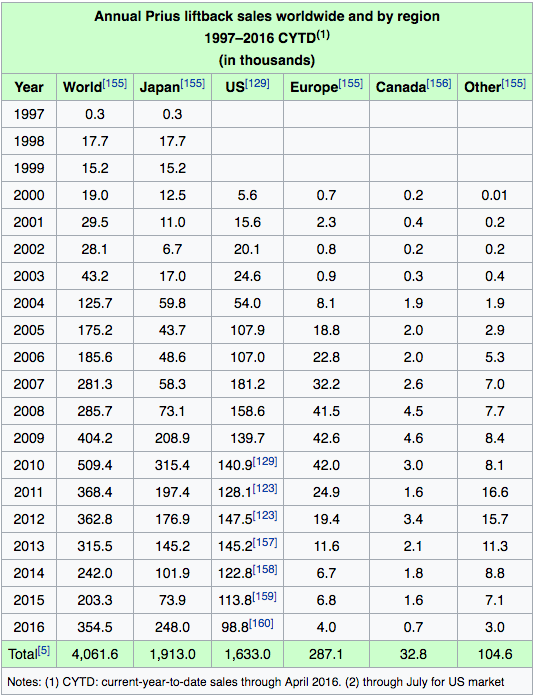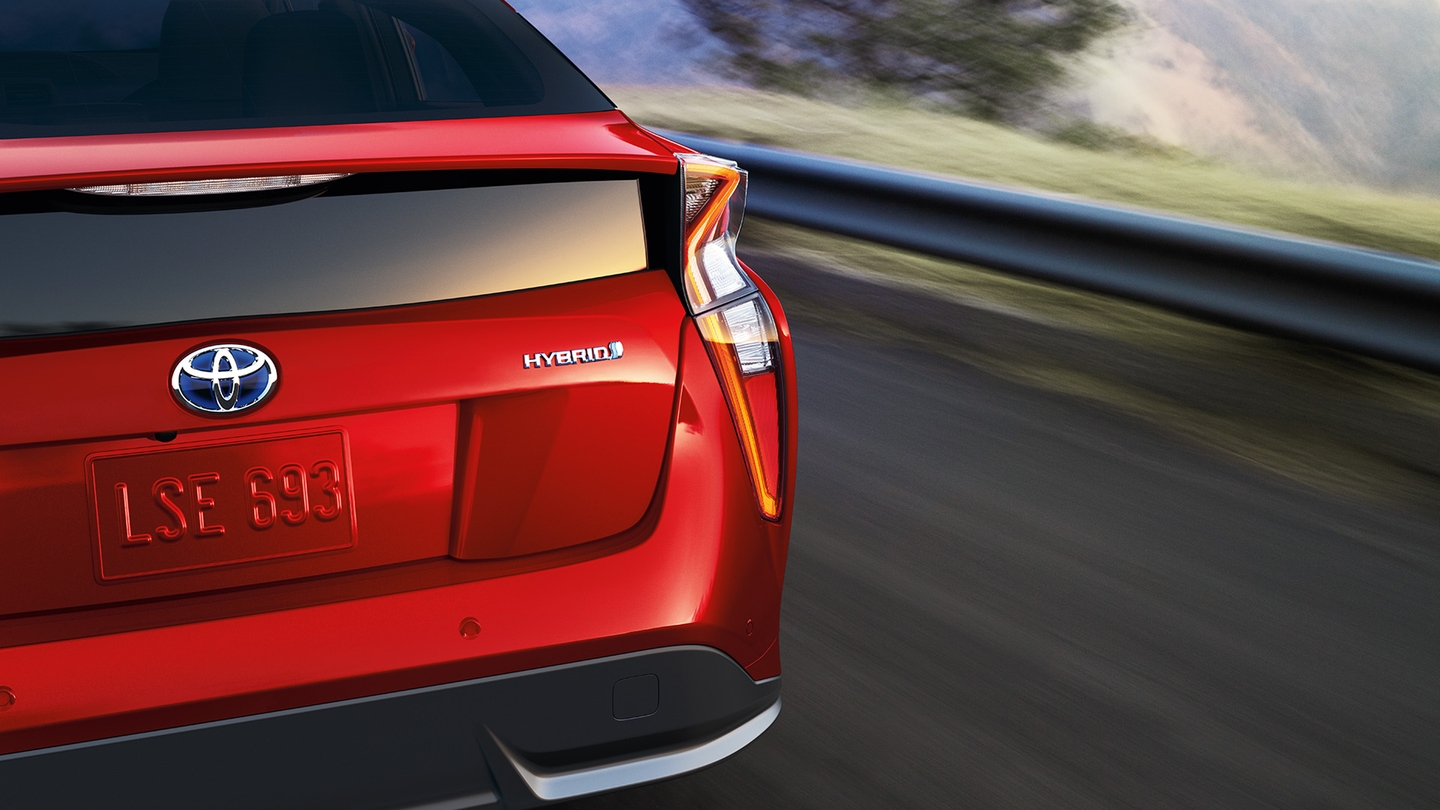Guest post by James Foster of EVRater
With the release of the Hyundai Ioniq in three variations (regular hybrid, plugin hybrid, and Electric), the consumer is faced with a complex decision.
Does the regular hybrid have a future? If you are moving from a regular gas-powered vehicle, which way do you go?

When the Toyota Prius appeared on the scene (starting 1997), it began to change the way consumers viewed vehicles and pollution. The Prius has gone on to sell more than 4 million units (see chart, and Toyota has surpassed a sales total of 10 million hybrid vehicles – this includes plugin hybrids).
The Prius showed us that a cleaner vehicle was possible, and could reach a price point where it became commercially viable.
But has that time passed? Do we really still need regular hybrids when battery technology has made significant advancements?
Better Fuel Efficiency?
Many drivers will point to fuel savings when asked why they chose a hybrid. And, while hybrids do get around 20 MPG more than your average gas car, there’s a glaring problem with this logic. Hybrids cost more than comparable internal combustion engine (ICE) cars.
Take the Prius for example, its hybrid engine will save the average driver around $600 at the pumps over a year. But, with a starting price of around $25,000, it costs close to $7,000 more than its ICE competition. This means you’d need to keep the Prius almost 12 years just to break even.

Vincentric’s U.S. Hybrid Ownership study found that only seven of the 29 hybrid models they tested were cheaper to own and run than a comparable ICE car. Diesel engines in particular are generally cheaper, and get around the same MPG figures as hybrids, except on highways, where they achieve even better figures.
However short-term cost savings must surely be weighed against the long term environmental costs. Diesel particulate from exhaust is a health risk. Given the level of cover-up surrounding emissions reporting, that risk is likely to be far higher than anticipated.
Overall, you probably aren’t going to save money with a hybrid.
Environmentally Superior
If your motivations for buying a hybrid are to be kinder to the environment, you’re on the right track. Hybrids do produce less carbon monoxide than their ICE counterparts, as hybrids use their engines less. But, at the risk of stating the obvious, fully electric vehicles operate like this at all times.
While hybrids are better for the environment than their gas counterparts, going to a battery electric vehicle (BEV) is the best answer to the emissions dilemma.
Battery electric vehicles are coming closer to competing with hybrids on price. And, in terms of practicality, even mid-range electric vehicles can get over 230 miles per charge.
However, the current availability of BEVs is limited, and you simply cannot find comparable BEVs to some of the hybrids currently available. One comparison is the 201 7 Toyota RAV4 Hybrid – with a starting retail price of $29,030. Arguably the closest BEV (in terms of model shape) is the Chevrolet Bolt (although it is more of a hatchback shape). With its retail price of $37,495 (before tax credits) it still presents a reasonable price hike. The Nissan LEAF could also offer a comparison (at $30,680), but with a compromise on range and body shape.
7 Toyota RAV4 Hybrid – with a starting retail price of $29,030. Arguably the closest BEV (in terms of model shape) is the Chevrolet Bolt (although it is more of a hatchback shape). With its retail price of $37,495 (before tax credits) it still presents a reasonable price hike. The Nissan LEAF could also offer a comparison (at $30,680), but with a compromise on range and body shape.
Maintenance Cost
It has to be noted that BEVs are much easier and cheaper to maintain than ICE cars, but hybrids aren’t. Hybrids are often touted as the ‘best of both worlds’ but, in terms of maintenance, they’re the worst of both worlds. You have all the usual maintenance of a gas car, but with the added issue of battery degradation.
Where Next For The Hybrid?
Plugin hybrids (PHEVs) present a whole other issue. Many PHEVs are now very close to their ICE counterparts in price terms They may well be the stepping-stone needed before BEVs reach their price ‘tipping point’.
However over the next few years as more PHEVs and BEVs appear, the regular hybrid may well be destined for extinction. We are not quite there yet.
What do you think? Let us know what you think the future holds for regular hybrids.
EVRater.com is following the electric vehicle revolution, tracking all current and upcoming EVs.
Image Sources: Wikipedia, Toyota.com, Chevrolet.com

